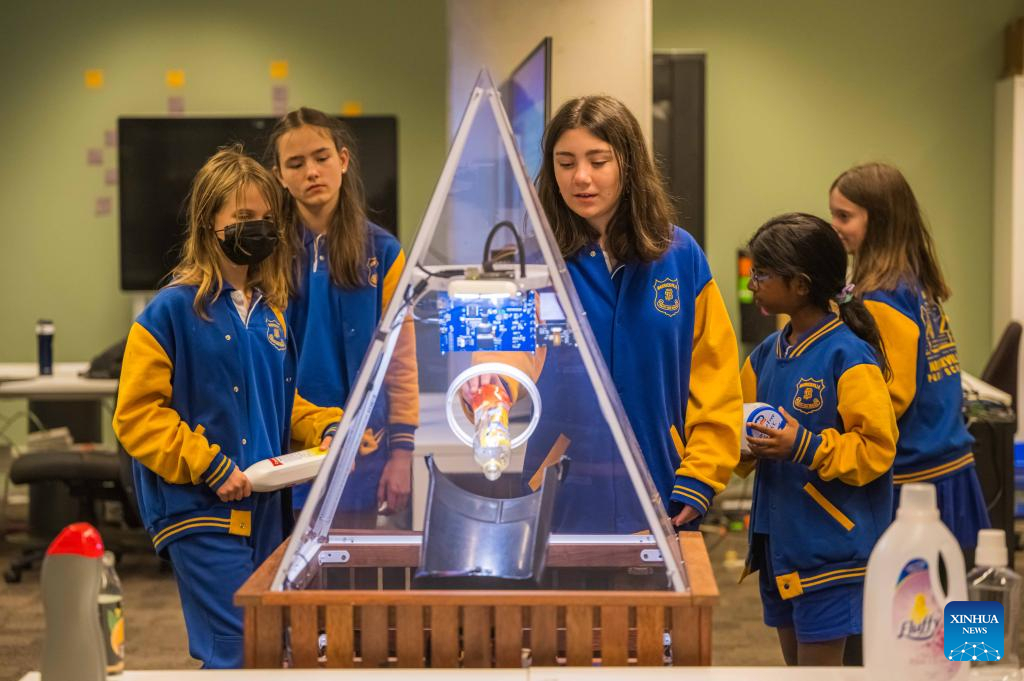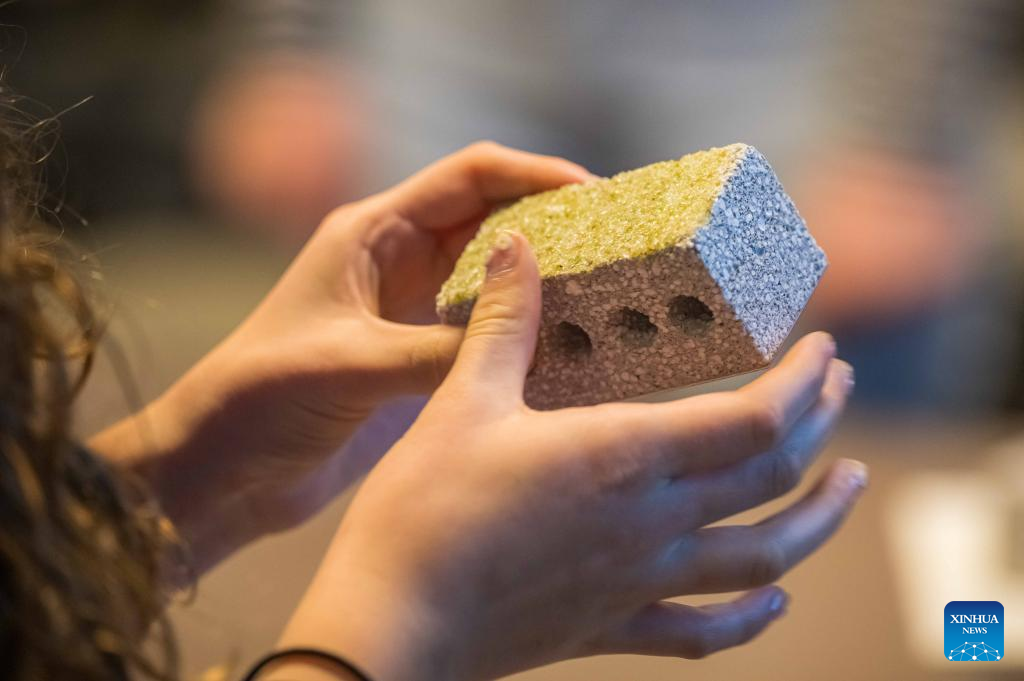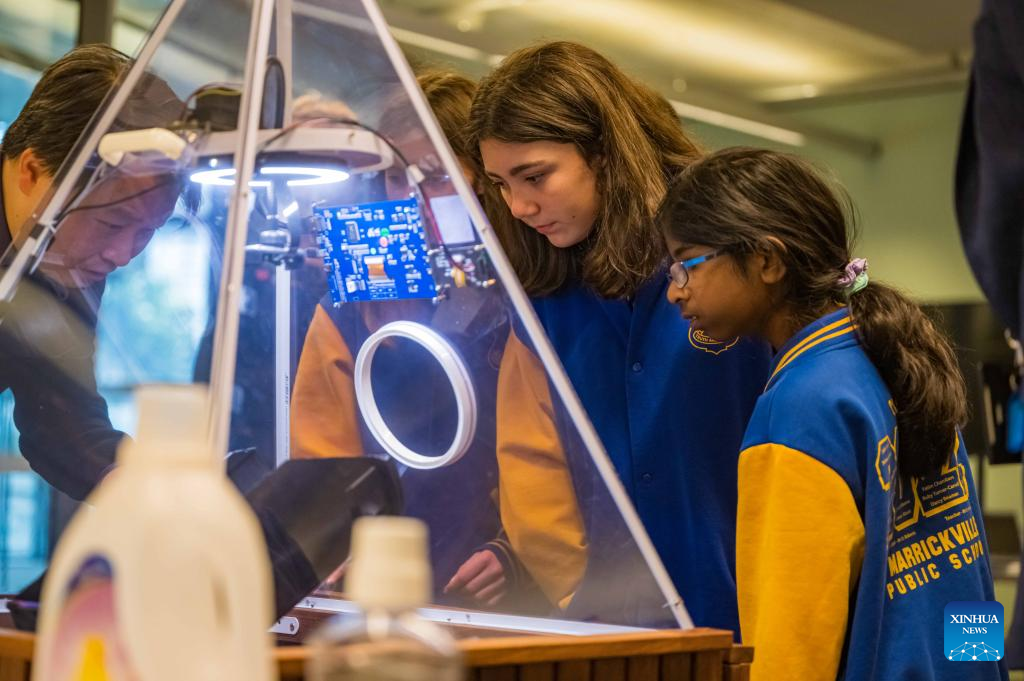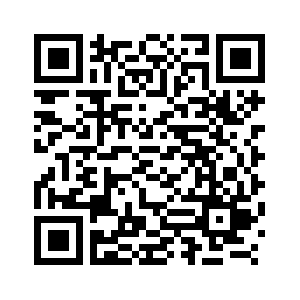
Photo provided by the Commonwealth Scientific and Industrial Research Organisation (CSIRO) on Aug. 16, 2022 shows local students from year 6 testing a new prototype "Smart Bin" at the University of Technology Sydney in Sydney, Australia. Australia's national science agency has unveiled the latest innovations in recycling during the yearly National Science Week to inspire the next generation to lead a circular economy-focused future. (CSIRO/Handout via Xinhua)
CANBERRA, Aug. 16 (Xinhua) -- Australia's national science agency has unveiled the latest innovations in recycling during the yearly National Science Week to inspire the next generation to lead a circular economy-focused future.
On Tuesday, the Commonwealth Scientific and Industrial Research Organisation (CSIRO) said that local students from year 6 had joined researchers to test a new prototype "Smart Bin" and interact with construction materials made from recycled glass and polystyrene.
The "Smart Bin", which is a proof of concept device designed to improve recycling rates and reduce contamination in waste streams, uses the Internet of Things (IoT), sensing, robotics, Artificial Intelligence (AI) and infrared spectroscopy technologies to automatically sort plastic, metal and glass, as well as sorting specific types of plastic.
According to CSIRO, New South Wales (NSW), Australia's most populous state with Sydney as the capital city, only recycled 10 percent of its 800,000 tonnes of plastic waste a year, with the rest ending up in landfill.
The latest innovations unveiled on Tuesday also support turning waste into a resource. The small business Casafico has created commercial construction materials from recycled glass, newspaper and polystyrene, much of which is sourced through online waste exchange marketplace.
Larry Marshall, CSIRO chief executive, said innovation and collaboration were essential to developing Australia's circular economy and are at the heart of the collaborative "Ending Plastic Waste Mission", which has a goal of reducing 80 percent of plastic waste in Australia by 2030.
"Solutions from science that will grow our circular economy take collaboration at every stage of the innovation process," Marshall said in a media release.
"Science can transform our economy into a circular one that renews and reuses what we previously discarded, creates higher paid jobs, advances new Australian technology, and protects our environment while inspiring the next generation with what's possible -- during National Science Week and throughout the year."
The National Science Week, established in 1997, is Australia's annual celebration of science and technology. Running each year in August, it features more than 1,000 events around Australia, which attract a wide audience from children to adults, and science amateurs to professionals.
In line with the 2022 Week theme "Glass: more than meets the eye", curriculum-aligned lesson plans have been developed with suggested class activities around the glass, plastic and the circular economy theme made available to support teachers nationwide, said CSIRO. ■

Photo provided by the Commonwealth Scientific and Industrial Research Organisation (CSIRO) on Aug. 16, 2022 shows the "Tecoblocks" made from recycled materials including glass.
Australia's national science agency has unveiled the latest innovations in recycling during the yearly National Science Week to inspire the next generation to lead a circular economy-focused future. (CSIRO/Handout via Xinhua)

Photo provided by the Commonwealth Scientific and Industrial Research Organisation (CSIRO) on Aug. 16, 2022 shows local students from year 6 testing a new prototype "Smart Bin" at the University of Technology Sydney in Sydney, Australia.
Australia's national science agency has unveiled the latest innovations in recycling during the yearly National Science Week to inspire the next generation to lead a circular economy-focused future. (CSIRO/Handout via Xinhua)



